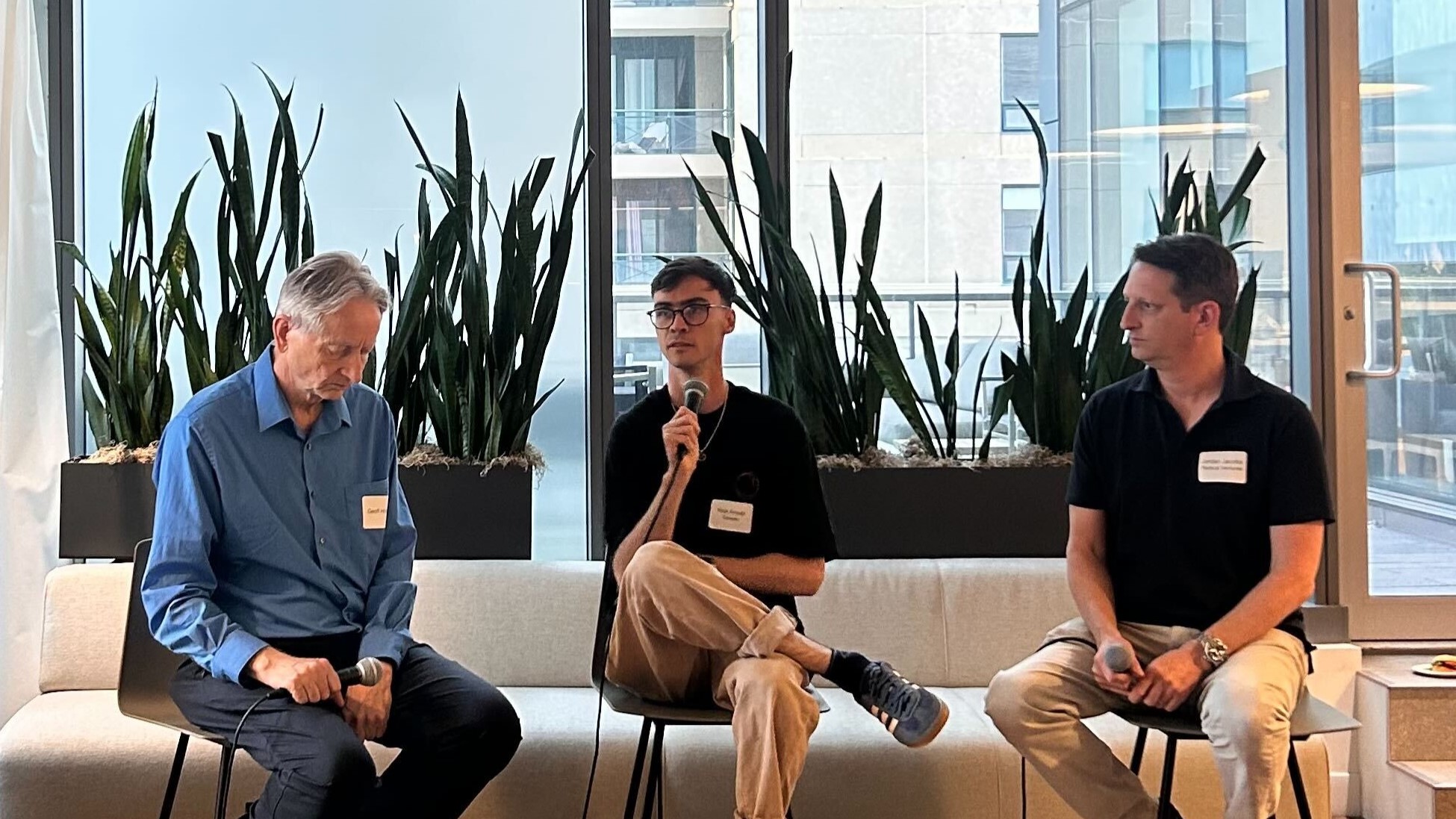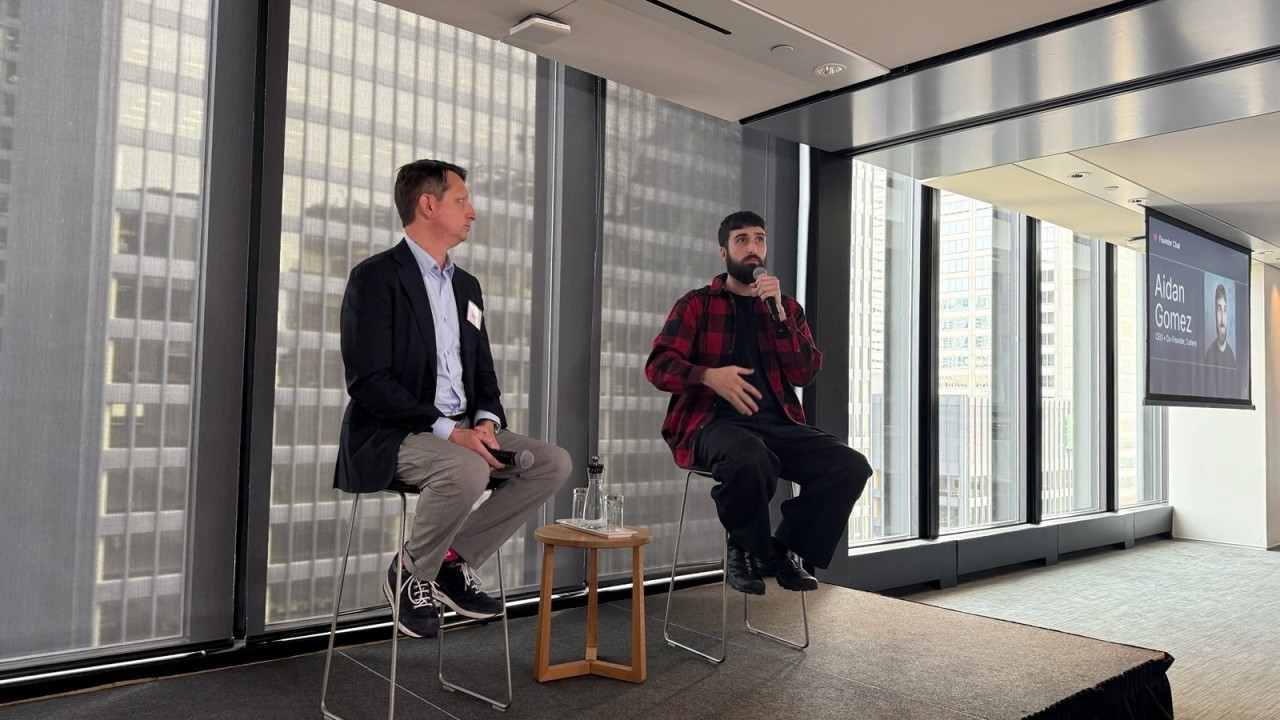We are very proud to announce our investment in World Labs, a spatial intelligence company building Large World Models (LWMs) to perceive, generate, and interact with the 3D world. World Labs was founded by my great friend, AI pioneer and Radical Scientific Partner, Fei-Fei Li, along with brilliant co-founders Ben Mildenhall, Justin Johnson, and Christoph Lassner. Language has driven remarkable progress in generative AI in the last few years, and images and video have emerged as additional modalities. But we are only scratching the surface of what is possible. We believe Spatial Intelligence is a critical and extraordinarily exciting next frontier for AI.
We have been partners on the World Labs journey since it began. This week, as World Labs emerges from stealth, they share more about what they are building and the enormous opportunity presented by improving AI’s capability to understand and engage with the world around us.
Human intelligence has many facets. One is verbal intelligence, enabling us to communicate and connect with others through language. But perhaps more fundamental is spatial intelligence, allowing us to understand and interact with the world around us. Spatial intelligence also helps us create, and bring forth pictures in our mind’s eye into the physical world. We use it to reason, move, and invent – to visualize and architect anything from humble sandcastles to towering cities.
We believe that artificial intelligence will help humans build better worlds. Progress has been rapid, but we have only seen the first chapter of the generative AI revolution. Language has thus far catalyzed this electrifying early moment, with text-prompted image and video models rising up alongside large language models (LLMs) as a harbinger of AI’s potential in the visual realm. These models have already empowered people to work and create in new ways; but they only scratch the surface of what is possible. To advance beyond the capabilities of today’s models, we need spatially intelligent AI that can model the world and reason about objects, places, and interactions in 3D space and time.
This week we announced the formation of World Labs: a spatial intelligence AI company building Large World Models (LWMs) to perceive, generate, and interact with the 3D world. We aim to lift AI models from the 2D plane of pixels to full 3D worlds – both virtual and real – endowing them with spatial intelligence as rich as our own. Human spatial intelligence evolved over millennia; but in this time of extraordinary progress, we see the opportunity to imbue AI with this ability in the near term.
World Labs was founded by visionary AI pioneer Fei-Fei Li along with Justin Johnson, Christoph Lassner, and Ben Mildenhall; each a world-renowned technologist in computer vision and graphics. We are bringing together the most formidable slate of pixel talent ever assembled – from AI research to systems engineering to product design – creating a tight feedback loop between our spatially intelligent foundation models and products that will empower our users.
AI is an emerging field with the potential to transform our world. However, we view it not as singularly unique but instead as part of the continuous progress of technology, continuing humanity’s centuries-old quest to empower people with increasingly sophisticated tools. We believe that humans are innovative, curious, and creative; science and technology are both manifestations and drivers of these impulses. Propelling AI forward with spatial intelligence will also propel forward both individuals and humanity as a whole.
Toward this goal, World Labs will develop spatially intelligent Large World Models (LWMs) that can understand and reason about the 3D world from images and other modalities. Over time, we expect to train increasingly powerful models with broader capabilities that can be applied in a variety of domains, working alongside people.
Initially we will focus on generating 3D worlds without limits – creating and editing virtual spaces complete with physics, semantics, and control. We hope this will unlock new capabilities for creative users and professionals such as artists, designers, developers, and engineers. It will also allow anyone to imagine and create their own worlds, expanding the potential of generative AI from 2D images and videos to 3D worlds.
These are ambitious goals, so we are building an ambitious company to tackle them. Our team has a strong research background, but we are not motivated by exploration for its own sake. Instead, we believe that now is a unique moment where rapid scientific progress has thinned the barrier between research and applications. We aim to seize this opportunity, focusing on the entire throughline from research to engineering to product to people.
Learn more at worldlabs.ai
AI News This Week
-
OffDeal wants to help small businesses find big exits with AI agents (TechCrunch)
Radical Ventures new portfolio company OffDeal uses AI to streamline M&A services for small businesses, automating tasks like identifying buyers and creating pitch decks. Small to medium-sized business (SMBs) which make up 44% of the US GDP, often lack access to traditional investment banking services for exits under $25 million. Similar to banks, OffDeal’s AI agents help match businesses with buyers, charging a 5 to 10% fee for facilitating the transaction. OffDeal is scaling quickly with 250 institutional buyers on its waitlist and 9 under contract currently.
-
Toronto ranks 4th in North American tech talent, driven by demand for AI skills (Financial Post)
Toronto has seen the largest tech job growth in North America over the past five years, adding 95,900 tech jobs, according to a CBRE report. AI startups and tech giants are expanding in Toronto, drawn by lower operational costs and competitive salaries. Toronto’s ranking reflects the strong supply of AI talent supplied by graduates of leading AI research institutions such as the Vector Institute and the University of Toronto. Corporations have taken notice, with companies like Samsung, Nvidia, and Google setting up an AI presence in the city. The abundance of talent has also led to the launch of AI startups such as Radical Ventures portfolio companies Cohere, Untether AI, and Waabi.
-
AI isn’t magic, but can it be ‘agentic’? (The New York Times)
“Agentic AI” is a new frontier in AI, designed to act independently and complete tasks without human prompts. Unlike current AI tools that respond to specific commands, agentic AI anticipates needs and autonomously takes action. Tasks can range from predicting machine maintenance to booking a vacation. As highlighted in a recent Forbes article by Radical Ventures partner Rob Toews, significant market opportunities lie at the application layer, where tailored AI agents can transform industries like software engineering and customer support by automating structured and repeatable tasks. This technology could fundamentally reshape how businesses operate, particularly in roles requiring human oversight.
-
How much will AI help in the next pandemic? (BBC)
Overall, experts feel that we are in a better position for the next pandemic, partly because of the progress made in AI. For example, researchers in California are developing AI systems to analyze social media for early signs of outbreaks. Open source bioinformatics tools like EVEScape can predict viral mutations, aiding vaccines and therapeutic development. Companies like Radical Ventures portfolio company Nabla Bio are leveraging AI to speed up the discovery of antibodies for new vaccines with pharmaceutical partners. While AI accelerates scientific efforts, continued collaboration is essential to foster strong relationships, facilitate information sharing, and build the trust needed to effectively manage future pandemics.
-
Beyond preferences in AI Alignment (MIT/UC Berkeley/University College London/University of Cambridge)
The prevailing approach to align AI systems focuses on tuning these systems to match human preferences, reward structures, or utility functions. Researchers are arguing that this approach – common in methods like Reinforcement Learning from Human Feedback (RLHF) – oversimplifies human values neglecting the limitations of bounded rationality, incomplete preferences, and the complex, context-dependent nature of those values. The authors suggest shifting AI alignment to focus on normative standards tied to the social roles AI systems play, rather than individual preferences. In this model, AI would be designed to understand human values within social contexts and follow ethical norms, rather than just optimizing for stated preferences. This approach may better reflect the ethical complexities of human values and enhance AI’s positive impact on society.
Radical Reads is edited by Ebin Tomy.





